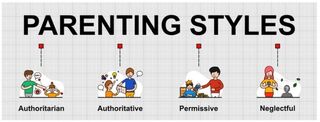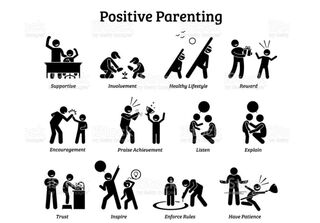Parenting
The Importance of Culture in Parenting Science
Parenthood is a combination of evolution and culture.
Posted March 31, 2022 Reviewed by Lybi Ma
Key points
- Cross cultural parenting science has its unique set of challenges.
- These challenges involve unmatched measurements, limited methodological designs, and non-availability of representative samples.
- It is essential to focus on cross-cultural parenting science to have suitable developmental models.
- Models relating to parenting science need to be culturally sensitive.
What is the biggest nightmare of an Asian parent? A common answer may be parenting a child who is modern, individualistic, self-centered, outspoken, and rebellious. Contradictorily, a western parent would consider similar qualities in their children to be rewarding. Decades of research concerning parenting science has distinguished between the eastern and western style of parenting, associating the former with authority and the latter with a liberal outlook. The existential question then is whether this bifurcation of parenting styles is normative?
Research has argued that this complicated question can be answered by resorting to a cultural approach to parenting science. Using culture gives researchers an opportunity to understand parenting from a socio-cultural perspective, as well as explore its interaction with biological variables. Ignoring the variance of culture in as well as on parenting would make the whole process “uncritical” and reduce the ecological validity of research findings across cultures.

The cultural approach to parenting is of utmost importance considering the bi-directional relationship between the two. On that premise, cultural practices define parenting styles and values. In return, parents and their parenting styles ensure the continuity of cultural traditions in upcoming generations. An instance of this was reflected in a study conducted on European American and Puerto Rican mothers. The findings showcased the mother’s differential adherence to values of autonomy and dependence in the two cultures. Furthermore, this affected their styles of parenting, leading to European American mothers resorting to suggestions when guiding their children’s behaviors, whereas Puerto Rican mothers relied on commands to do the same with their children.
The definition of both culture and parenting as concepts is still under speculation and not agreed upon. Additionally, one of the major difficulties involves the inability to settle on a particular definition for both parenting and culture, which further complicates the situation. This problem has its roots in the evolving nature of societies due to migration, modernization, cross-cultural marriage, and such.
A groundbreaking paper aimed at dissecting the parallels between American and Japanese parenting science also asked some fundamental questions, one of which focused on why cross-cultural parenting research is important. The results recorded ample reasons ranging from being able to form a developmental model that is suitable across many cultures, to being cognizant of the variation in childrearing practices across cultures. More importantly, learning more about norms of not only one’s own culture, but also of others as they relate to being parents was also noted.

The cross-cultural study of parenting science has also made it possible to understand the universal as well as culturally sensitive aspects of parenting. Research has shown that nurturing and taking care of one’s offspring is a universal aspect of being a parent, whereas a lot of other processes such as the need to play and engaging in baby talk, is not. The evidence for the same comes from studies showing the importance of different kinds of culturally influenced play; for instance, American mothers encourage their children to play independently whereas Japanese mothers encourage their toddlers to engage in play involving social interactions.
The scope of cross-cultural differences in parenting science is not only limited to parent-child interaction but also takes into consideration the cognitions of parents. A study comparing parenting attributions (defined as the parents’ ability to allocate their success or failure relating to parenting to either themselves, their children or both) shows that parents belonging to different countries hold widely varied attributions and hence any model of care, investment, or even therapy not accounting for these differences are not very versatile.
Cross-cultural parenting science also has implications for the temperaments of children. A study involving Chinese participants shows that the authoritarian style of parenting (Eastern style) predicts successfully the child’s temperament (effortful control and anger, frustration), whereas authoritative (Western style) doesn’t predict temperament in Chinese children. In addition, the cultural parenting narrative also dictates the way parents decide to interact with their children (care, communicate, invest), upon which is contingent the child’s mental health and attachment styles in future relationships.

In summary, it is essential for clinicians, therapists, and practitioners to keep in mind the workings of the foundational system of the society, i.e., parent-child interaction, upon which is built the more complex structures of societies such as family, and communities. Insights into the dynamics of this principle system will help the researchers not only understand the perks of the existing system, but also select avant garde practices that might be more beneficial. It will also contribute to developing a better understanding of social systems and using the practices from one culture to help correct errors of another.
This post is written by Urvi Mange, a Junior Research Assistant at the Department of Psychology, Monk Prayogshala.




